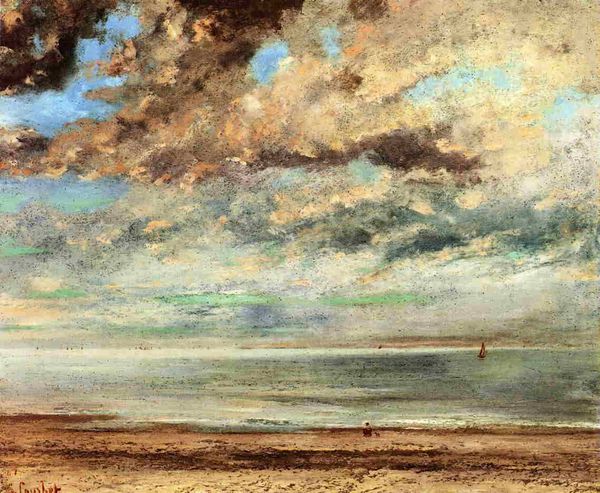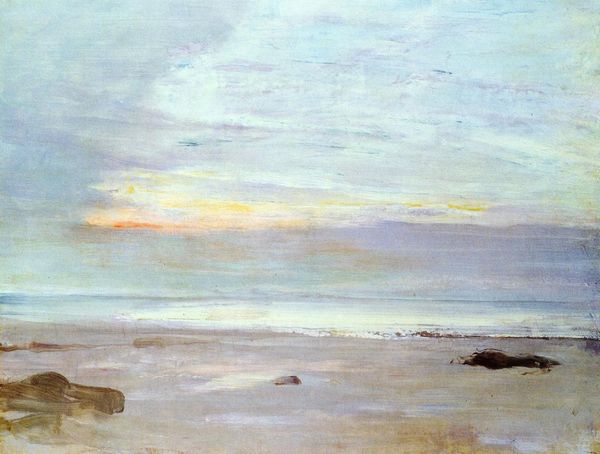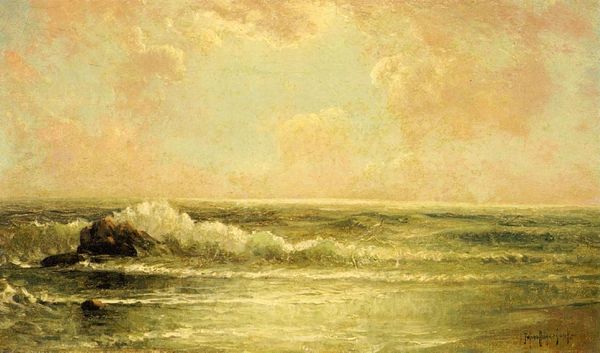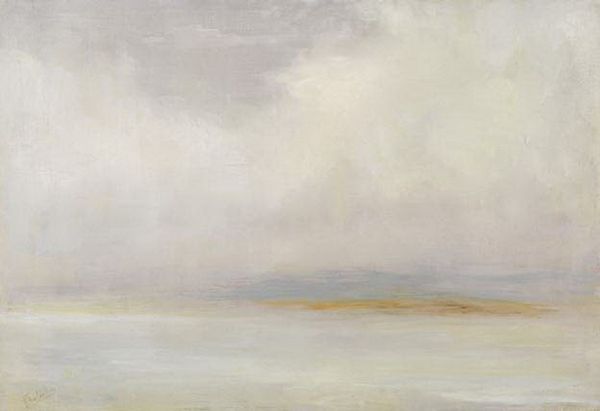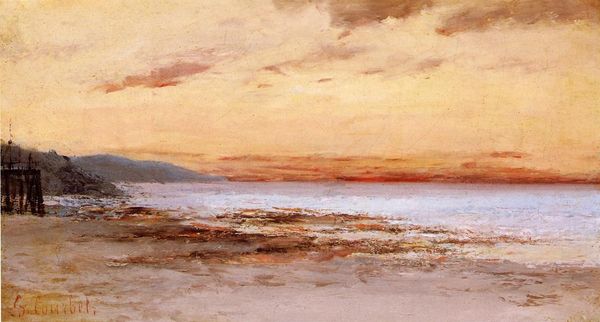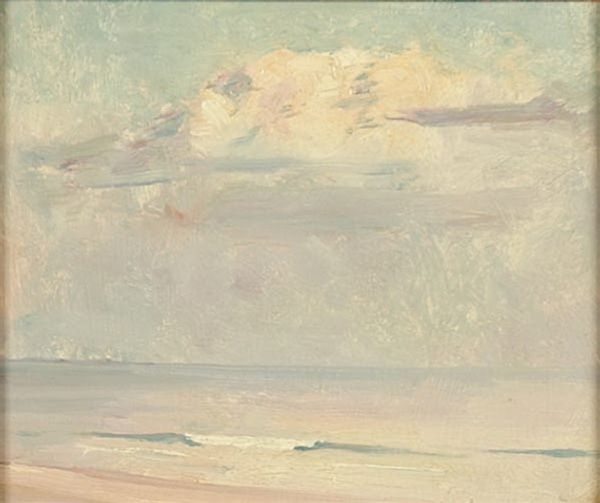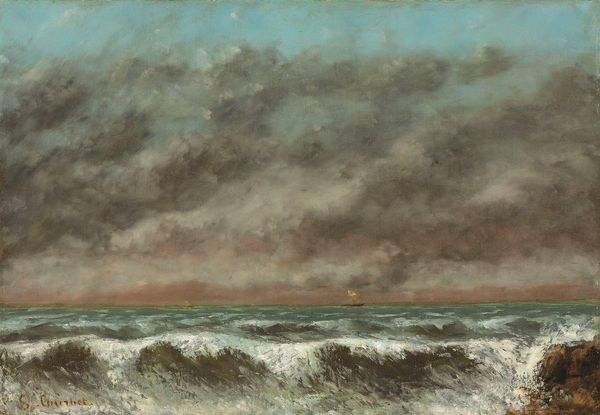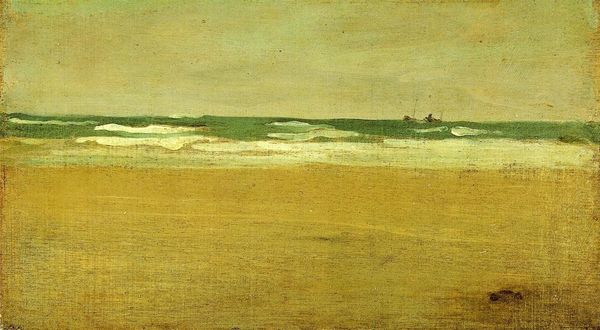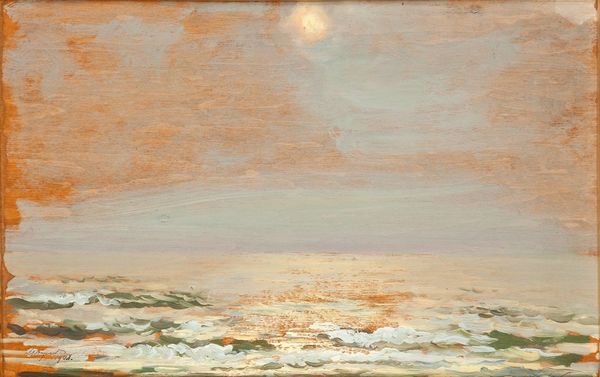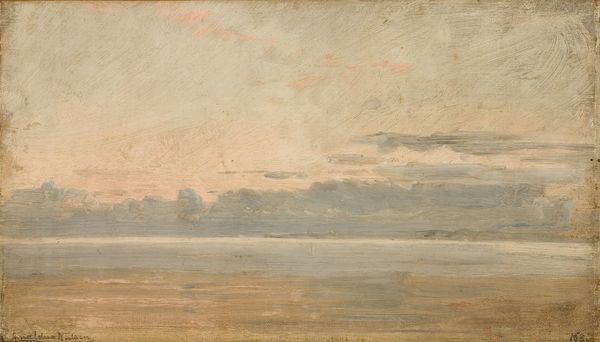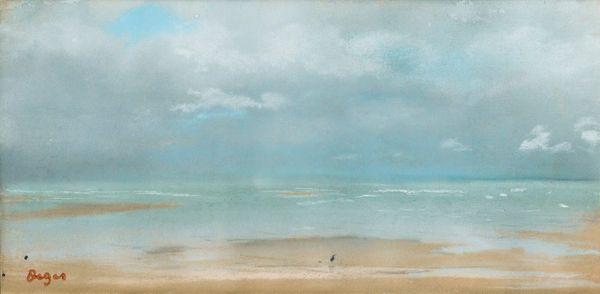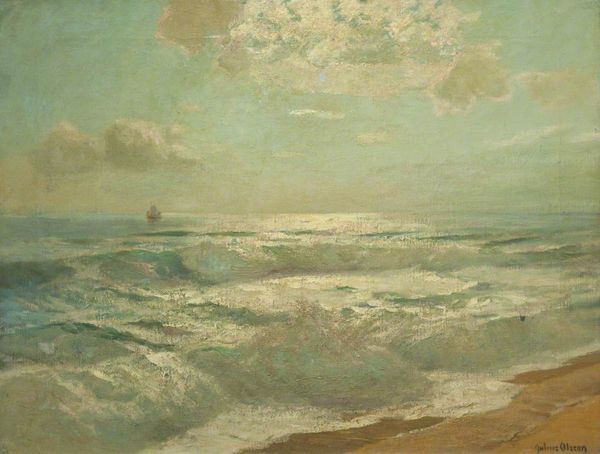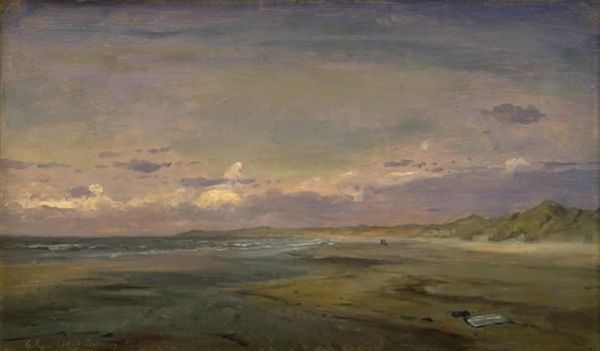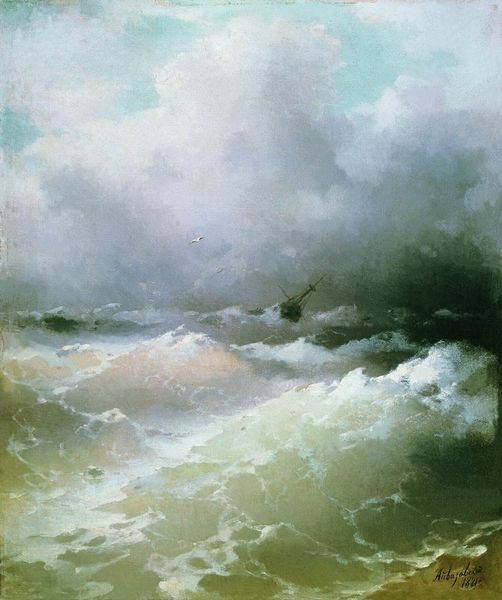
painting, oil-paint
#
boat
#
sky
#
ship
#
painting
#
impressionism
#
oil-paint
#
landscape
#
impressionist landscape
#
oil painting
#
ocean
#
cloud
#
sea
Dimensions: 53.34 x 95.89 cm
Copyright: Public domain
Editor: Whistler's "The Sea," painted in 1865 using oil paint, presents a vast seascape dominated by cloudy skies. I’m struck by how the textures, built up with the oil, create a real sense of atmosphere. What do you see when you look at it? Curator: The materiality here is really key. Whistler, though often associated with "art for art's sake," reveals through his handling of oil paint, a concern for the very *act* of painting itself. Think about the cost and availability of paints at the time. Were they pre-mixed? How did their manufacture impact the market for art? Editor: So you're suggesting we should think about this beyond just a pretty picture? The supply chain? Curator: Precisely! Consider how the rise of industrial paint production influenced Impressionism. Suddenly, artists could experiment with color in unprecedented ways. Look closely—does Whistler’s brushwork suggest a conscious awareness of this newfound material freedom? How might his patrons, likely from the rising merchant class, view this subject matter compared to traditional history painting? Editor: I hadn’t considered the impact of paint production itself. It’s interesting to think about the connection between industry and art like that. Curator: The accessibility of new materials impacted what, where, and how artists chose to represent their subjects. It's also critical to examine the role of labor in the creation of pigments, supports, and brushes, the tools central to the artwork’s existence. Consider how such labor might inflect interpretations of a seemingly serene seascape. Editor: That's a powerful shift in perspective for me. It makes me wonder about all the unseen hands involved in creating the art we admire. Curator: Absolutely, and hopefully this approach enhances how you engage with materiality and art going forward!
Comments
No comments
Be the first to comment and join the conversation on the ultimate creative platform.
